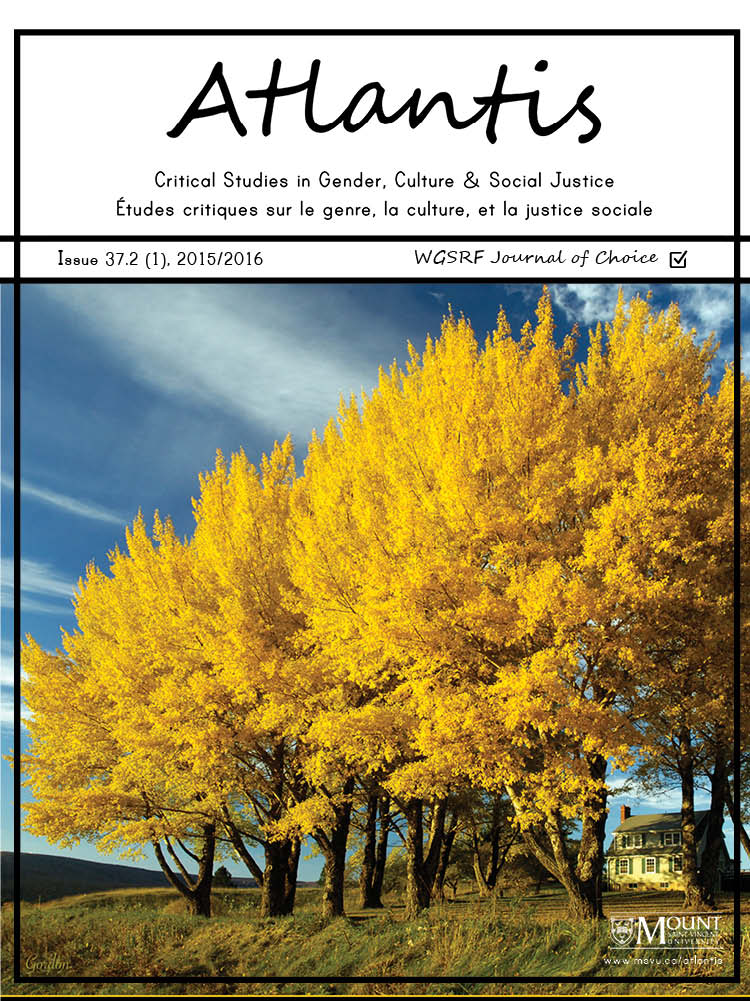Work Women Did to Make Constitutional Rights Work for Women
Keywords:
women's movement, activism, equality rightsAbstract
Abstract
Women were mobilizing in anticipation of constitutional reform in 1980 and secured a first round of significant amendments to section 15 equality rights by January 1981. The final Constitution Act, 1982 placed a three-year moratorium on section 15. Governments needed time to adjust their legislation to the equality requirements. Activist Nancy Ruth reflects on what the women’s movement did during those three years to create a rights framework that would work for women. She sets forth six major initiatives that have not been incorporated into the historical record. She concludes by assessing the strengths and weaknesses of this period of activism for women’s equality.1
Résumé
Les femmes se sont mobilisées en perspective de la réforme constitutionnelle en 1980 et ont obtenu une première série de modifications importantes aux droits à l’égalité de l’article 15 en janvier 1981. La Loi constitutionnelle définitive de 1982 a imposé un moratoire de trois ans sur l’article 15. Les gouvernements avaient besoin de temps pour adapter leur législation aux exigences de l’égalité. La militante Nancy Ruth se penche sur ce qu’a fait le mouvement féministe durant ces trois années, en vue de créer un cadre de droits qui fonctionnerait pour les femmes. Elle décrit six grandes initiatives qui n’ont pas été incorporées aux archives historiques. Elle conclut en évaluant les forces et les faiblesses de cette période de militantisme pour l’égalité des femmes.
References
Atcheson, Beth, Mary Eberts, Beth Symes and Jennifer Stoddart. 1984. Women and legal action: Precedents, resources and strategies for the future. Ottawa: Canadian Advisory Council on the Status of Women, October.
Bayefsky, Anne and Mary Eberts, eds. 1985. Equality rights and the Canadian Charter of Rights and Freedoms. Toronto: Carswell.
Brodsky, Gwen and Shelagh Day. 1989. Canadian Charter equality rights for women: One step forward or two steps back? Ottawa: Canadian Advisory Council on the Status of Women.
Doerr, Audrey and Micheline Carrier, eds. 1981 Women and the Constitution in Canada. Ottawa: Canadian Advisory Council on the Status of Women.
Marilou McPhedran Fonds. York University Clara Thomas Archives and Special Collections, 2007-0231/012(01).
Smith, Lynn, Gisèle Coté-Harper, Robin Elliot and Magda Seydegart, eds. 1986. Righting the balance: Canada’s new equality rights. Saskatoon: The Canadian Human Rights Reporter Inc.
Downloads
Published
Issue
Section
License
Copyright (c) 2016 Atlantis: Critical Studies in Gender, Culture & Social Justice

This work is licensed under a Creative Commons Attribution 4.0 International License.
Authors who publish with this journal agree to the following terms:
1. Authors retain copyright and grant the journal right of first publication, with the work simultaneously licensed under a Creative Commons Attribution 4.0 International License that allows others to share the work with an acknowledgement of the work's authorship and initial publication in this journal.
2. Authors are aware that articles published in Atlantis are indexed and made available through various scholarly and professional search tools, including but not limited to Erudit.
3. Authors are able to enter into separate, additional contractual arrangements for the non-exclusive distribution of the journal's published version of the work (e.g., post it to an institutional repository or publish it in a book), with an acknowledgement of its initial publication in this journal.
4. Authors are permitted and encouraged to preprint their work, that is, post their work online (e.g., in institutional repositories or on their website) prior to and during the submission process. This can lead to productive exchanges, as well as earlier and greater citation of published work. Read more on preprints here.







